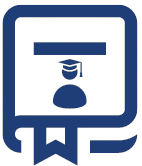In the ever-evolving landscape of software testing, the emergence of artificial intelligence (AI) has been nothing short of a revolution. It has transformed how we approach testing, injecting efficiency, accuracy, and adaptability into the process. As someone who has witnessed this transformative journey firsthand, I’ll take you on a voyage through the remarkable impact of AI in software testing, sharing personal insights along the way.
The AI-Powered Testing Landscape
The Past: Manual Testing
Not too long ago, manual testing reigned supreme. Testers meticulously executed test cases, documented defects and often found themselves overwhelmed by repetitive tasks. It was a labor-intensive process that left little room for exploring complex scenarios or adapting to rapid development cycles.
The Present: AI-Powered Testing
Fast forward to the present, and AI has disrupted the status quo. It has ushered in a new era of testing, where automation and intelligence converge to enhance testing capabilities.
The AI Testing Toolbox
Let’s explore the AI tools and techniques that have become indispensable in the testing toolkit.
1. Test Automation: My Early Encounters
I vividly recall my early encounters with test automation tools. AI-driven frameworks like Selenium and Appium were a revelation. They allowed me to automate repetitive test cases and significantly reduce testing time. It was liberating to witness tests run seamlessly, freeing up time for exploratory testing and complex scenarios.
2. Test Data Generation: Taming the Data Beast
Test data generation has always been a challenge. AI-driven data generation tools analyze application behavior and automatically create relevant test data. This capability has saved countless hours of manually crafting data sets and ensured more comprehensive test coverage.
3. Test Case Generation: The AI Assistant
AI-powered test case generation tools use machine learning algorithms to suggest test cases based on application changes. I’ve experienced the convenience of having an AI assistant analyze code changes and recommend relevant test cases. It’s like having a knowledgeable colleague always ready to assist.
4. Predictive Analysis: Anticipating Defects
AI-driven predictive analysis identifies potential defects by analyzing historical data. During one project, I witnessed AI algorithms predict areas of the application prone to defects based on past trends. This proactive approach allowed us to allocate resources effectively and reduce the defect count.
5. Continuous Testing: Accelerating CI/CD Pipelines
In the era of continuous integration and continuous deployment (CI/CD), AI-driven continuous testing ensures that testing keeps pace with development. I’ve seen how AI identifies impacted test cases, runs them automatically, and provides rapid feedback, accelerating the delivery pipeline.
Challenges Along the Way
The integration of AI in software testing hasn’t been without its challenges.
AI Adoption: Embracing Change
Adopting AI in testing requires a mindset shift. It demands a commitment to learning and adapting to new tools and methodologies. Embracing this change can be daunting but is essential for staying relevant.
AI Bias: Addressing Bias
AI algorithms can inherit biases present in training data. During one project, we encountered an issue where an AI-driven tool exhibited bias in test case recommendations. It was a valuable lesson in the importance of ethical AI development and vigilant monitoring.
AI Maintenance: Continuous Learning
AI models require continuous maintenance and updates. Staying informed about AI advancements and evolving best practices has become integral to my role. It’s a journey of continuous learning and adaptation.
The Future of AI in Testing
As we peer into the future, the potential of AI in software testing is boundless.
AI-Driven Autonomous Testing
Imagine AI-powered bots that autonomously explore applications, identify defects, and adapt to changing features. This vision is becoming a reality, and I’m excited about the possibilities it holds for improving testing efficiency.
AI in Test Reporting and Analytics
AI will play a pivotal role in generating insightful test reports and analytics. It will analyze test results, identify trends, and provide actionable insights, helping teams make data-driven decisions.
Conclusion: A Transformative Journey
The integration of AI in software testing has been a transformative journey—one that I’ve had the privilege of experiencing firsthand. It has elevated testing from a manual, time-consuming process to a dynamic, intelligent, and efficient discipline.
As AI continues to advance, testers must embrace change, address challenges, and remain committed to learning. The future of software testing is AI-powered, and those who embark on this journey with an open mind and a thirst for knowledge will navigate it successfully.
So, as we sail into this AI-powered era of software testing, let’s remember that it’s not just about the tools; it’s about the profound impact they have on our craft. It’s about harnessing AI’s potential to elevate the quality of software, delight users, and shape the future of technology—one test case at a time.


One response to “The AI Revolution in Software Testing: A Personal Journey”
[…] External Links:https://softwaretestingboard.com/the-ai-revolution-in-software-testing-a-personal-journey/https://softwaretestingboard.com/pioneering-the-path-navigating-future-landscape-software-testing/https://www.linkedin.com/in/deepika-kale/ […]